Kanjri Ka Pul
By: Younus Javed
-
Rs 272.00
- Rs 340.00
- 20%
You save Rs 68.00.
Due to constant currency fluctuation, prices are subject to change with or without notice.
Kanjri Ka Pul is Younus Javed's first novel. It tells us the story of three prostitutes with rich customers. This has been a favourite theme of teleplays and films, but Javed has written it differently, delving deep into the tricks of the trade and the mindset of the characters.
The novel narrates the story of three women Zohra Mushtaq, Feroze and Saba Zadey who get out of their miserable or boring life by selling their bodies and become very rich. Big landlords and the corrupt are their customers. They shower these women with money, land, cars, jewellery etc, but the lives of all of the three courtesans come to tragic pass. The years of immoral life do not deprive them of their conscience and basic human emotions. The women abhor incest when confronted with it and fall in love the reasons that create moral conflict in them. One woman leaves the luxurious life to find internal peace; the other gets murdered and the third one commits suicide.
Zohra Mushtaq is shocked when one of his customers, whom she likes as well, seeks to keep her adolescent child as his mistress, not knowing that she is his own bastard child. Later, the girl, whisked away by her mother abroad for higher studies, marries a boy who happens to be her real brother. The other call girl, Feroze, falls in love with a customer and gets murdered while trying to save him from the trap of his conspiring friends. The third one, Saba Zadey, commits suicide when she finds that one of her customers is actually her real brother. It appears that any mention of incest in the novel automatically triggers tragedy and finally punishment.
The novel also has male characters, despicable ones husbands of the call girls who become pimps of their wives and sex-driven rich people and a mullah, Maulvi Attar, who provides spiritual solace to a morally disturbed Zohra through his lectures on the man s relationship with God and helps the woman to build a great mosque-cum-school. In the end, Attar, too, as against his rhetoric and appearances, comes out as a worldly man who proposes Zohra for Halala marriage (a kind of temporary second marriage that qualifies a woman to marry her first husband after divorce from the second one) which she turns down to his annoyance. Attar takes his revenge by conspiring and inciting people to destroy the mosque, built with the money earned at a brothel. In his character we get the reflection of a real mullah in Lahore that was quite infamous for contracting Halala marriages in the red light area.
Another character of the novel is the nihilistic mob that raises slogans against a worship place built with the ill-gotten money; ransacks the mosque; kills the driver of Zohra Mushtaq who had come to see its inauguration; and attacks the woman and burns down her expensive car. The crowd has its logic and selective morality. It wants to punish the prostitute for providing money for the mosque and a school for girls but does not ask its builders as to why they accepted this money. Here Javed connects his story to a historical incident of 1939 when Saleha, a prostitute from Lahore, saved the lives of 14 Khaksar workers who had clashed with the British force. Saleha was tortured by the police but she never divulged the truth. Saleha is the same woman who got a bridge built with her money in the Baghbanpura locality which came to be known as Kanjri Pul. This bridge has a symbolic significance in that it served people as a public utility and the prostitute for her salvation from a sinful life to a life of public service. The character of Zohra is inspired from Saleha s life. In contrast to unsympathetic, ruthless and cruel behaviour of the crowd, the prostitute s personality exudes characteristics of compassion, mercy and repentance over her sins.
While describing the call girls encounters
Kanjri Ka Pul is Younus Javed's first novel. It tells us the story of three prostitutes with rich customers. This has been a favourite theme of teleplays and films, but Javed has written it differently, delving deep into the tricks of the trade and the mindset of the characters.
The novel narrates the story of three women Zohra Mushtaq, Feroze and Saba Zadey who get out of their miserable or boring life by selling their bodies and become very rich. Big landlords and the corrupt are their customers. They shower these women with money, land, cars, jewellery etc, but the lives of all of the three courtesans come to tragic pass. The years of immoral life do not deprive them of their conscience and basic human emotions. The women abhor incest when confronted with it and fall in love the reasons that create moral conflict in them. One woman leaves the luxurious life to find internal peace; the other gets murdered and the third one commits suicide.
Zohra Mushtaq is shocked when one of his customers, whom she likes as well, seeks to keep her adolescent child as his mistress, not knowing that she is his own bastard child. Later, the girl, whisked away by her mother abroad for higher studies, marries a boy who happens to be her real brother. The other call girl, Feroze, falls in love with a customer and gets murdered while trying to save him from the trap of his conspiring friends. The third one, Saba Zadey, commits suicide when she finds that one of her customers is actually her real brother. It appears that any mention of incest in the novel automatically triggers tragedy and finally punishment.
The novel also has male characters, despicable ones husbands of the call girls who become pimps of their wives and sex-driven rich people and a mullah, Maulvi Attar, who provides spiritual solace to a morally disturbed Zohra through his lectures on the man s relationship with God and helps the woman to build a great mosque-cum-school. In the end, Attar, too, as against his rhetoric and appearances, comes out as a worldly man who proposes Zohra for Halala marriage (a kind of temporary second marriage that qualifies a woman to marry her first husband after divorce from the second one) which she turns down to his annoyance. Attar takes his revenge by conspiring and inciting people to destroy the mosque, built with the money earned at a brothel. In his character we get the reflection of a real mullah in Lahore that was quite infamous for contracting Halala marriages in the red light area.
Another character of the novel is the nihilistic mob that raises slogans against a worship place built with the ill-gotten money; ransacks the mosque; kills the driver of Zohra Mushtaq who had come to see its inauguration; and attacks the woman and burns down her expensive car. The crowd has its logic and selective morality. It wants to punish the prostitute for providing money for the mosque and a school for girls but does not ask its builders as to why they accepted this money. Here Javed connects his story to a historical incident of 1939 when Saleha, a prostitute from Lahore, saved the lives of 14 Khaksar workers who had clashed with the British force. Saleha was tortured by the police but she never divulged the truth. Saleha is the same woman who got a bridge built with her money in the Baghbanpura locality which came to be known as Kanjri Pul. This bridge has a symbolic significance in that it served people as a public utility and the prostitute for her salvation from a sinful life to a life of public service. The character of Zohra is inspired from Saleha s life. In contrast to unsympathetic, ruthless and cruel behaviour of the crowd, the prostitute s personality exudes characteristics of compassion, mercy and repentance over her sins.
While describing the call girls encounters
Zubin Mehta: A Musical Journey (An Authorized Biography)
By: VOID - Bakhtiar K. Dadabhoy
Rs 472.50 Rs 1,050.00 Ex Tax :Rs 472.50
The Origins of Political Order From Prehuman Times to the French RevolutioN
By: Francis Fukuyama
Rs 3,116.00 Rs 3,895.00 Ex Tax :Rs 3,116.00
Manning Up: How the Rise of Women Has Turned Men into Boys
By: Kay Hymowitz
Rs 646.75 Rs 995.00 Ex Tax :Rs 646.75
The Obama Syndrome: Surrender At Home War Abroad
By: Tariq Ali
Rs 1,036.00 Rs 1,295.00 Ex Tax :Rs 1,036.00
The Quest For Meaning: Developing A Philosophy Of Pluralism
By: Tariq Ramadan
Rs 1,116.00 Rs 1,395.00 Ex Tax :Rs 1,116.00
The Pakistan US Conundrum Jihadists The Military And The People The Struggle For Control
By: Yunas Samad
Rs 1,116.00 Rs 1,395.00 Ex Tax :Rs 1,116.00
An Enemy We Created: The Myth Of The Taliban Al Qaeda Merger In Afghanistan 19702010
By: Alex Strick van Linschoten
Rs 3,412.50 Rs 5,250.00 Ex Tax :Rs 3,412.50
WikiLeaks: Inside Julian Assanges War on Secrecy
By: David Leigh & Luke Harding
Rs 552.50 Rs 850.00 Ex Tax :Rs 552.50
No recently viewed books available at the moment.
Zubin Mehta: A Musical Journey (An Authorized Biography)
By: VOID - Bakhtiar K. Dadabhoy
Rs 472.50 Rs 1,050.00 Ex Tax :Rs 472.50











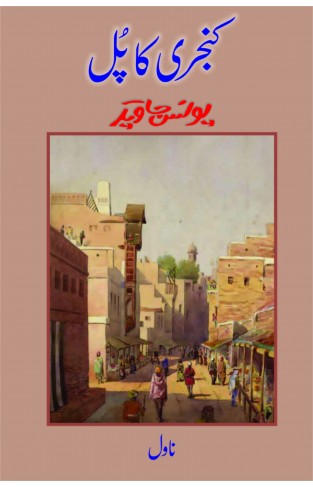
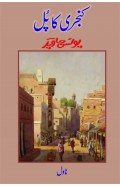
-120x187.jpg?q6)





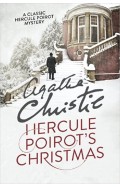
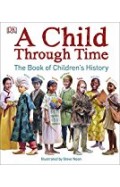
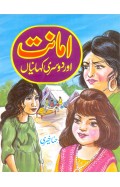
-120x187.jpg?q6)
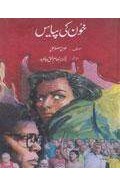
-120x187.png?q6)
-120x187.jpg?q6)



-120x187.jpg?q6)



